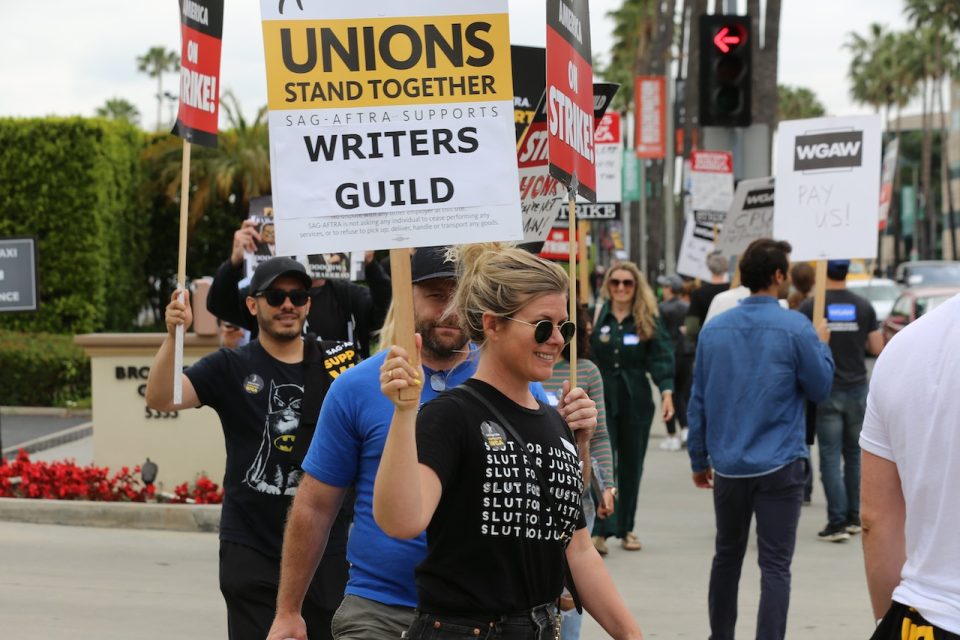The ongoing double strike in Hollywood has reached a standstill, as the Writers Guild of America (WGA) rebuffed the studios’ counterproposal, citing a failure to meet the writers’ demands. The deadlock has cast a somber mood over the entertainment industry, with the writers’ strike entering its fifth month and the actors’ strike pushing into its second month. Experts point out that this simultaneous work stoppage, dubbed the “double whammy,” is causing significant economic repercussions, reminiscent of the impact seen during the previous writers’ strike.
During the 2007-2008 writers’ strike, Los Angeles County’s economy took a staggering hit of $2.5 billion, according to estimates from the Los Angeles County Economic Development Corp. This time around, the financial toll is predicted to be even more severe, potentially exceeding that figure. Kevin Klowden, the Chief Global Strategist at the Milken Institute, has revised his earlier projection, now estimating that the ongoing strikes could cost the national economy upwards of $5 billion. Klowden underscores that the repercussions will extend beyond the entertainment sector, affecting diverse businesses including restaurants, catering companies, trucking agencies, and dry cleaning establishments.
Speaking to Yahoo Finance Live in a recent interview, Klowden emphasized the far-reaching effects, encompassing not only California-based industries but also those in New York, Atlanta, Albuquerque, Pittsburgh, and other production-friendly locales. The impact encompasses not only lost wages but also the ramifications of postponed films and canceled programming. Major projects like the sequel to Warner Bros.’ “Dune” and Amazon’s series “A League of Their Own” stand as significant contributors to the mounting losses.
Klowden noted that while the immediate bottom lines of major industry players like Disney, Warner Bros., Universal, Netflix, Amazon, and Apple might not be drastically affected, the longer-term consequences could be more substantial. Delays in film releases mean delayed revenue retrieval, leading to a potential protracted recovery from the strike’s impact.
In response to the ongoing strikes, streaming platforms have been seeking alternative content to keep audiences engaged. Networks are turning to strike-resistant programming such as reality TV, international series, and, in some cases, live sports and news. An exemplar of this trend is the resurgence of the USA Network’s drama “Suits” on Netflix, drawing record-breaking viewership after the platform acquired the series. Nielsen reports indicate that “Suits” amassed a remarkable 18 billion minutes of viewing time in July, driven not only by platform promotion but also word-of-mouth recommendation.
Warner Bros. Discovery’s Max has also embraced this strategy, forging a 60-day agreement with AMC to bring AMC+ content like “Fear The Walking Dead” and “Killing Eve” to their platform. This departure from exclusive content retention signals a shift towards syndication, a strategy that holds promise in reviving neglected content.
Kevin Klowden argues that this approach could accelerate the timeline for media consolidation, especially for mid-level companies. However, he maintains that there are limits to effective consolidation, suggesting that the trend might be more pronounced among mid-size companies dealing with financial pressures.
As the Hollywood double strike continues, the industry grapples with uncertainty, economic strain, and shifting content consumption trends. The ongoing impasse between writers and studios underscores the need for compromise to alleviate the mounting economic challenges, as Hollywood’s entertainment engine faces unprecedented disruptions.
Source: Yahoo Finance

